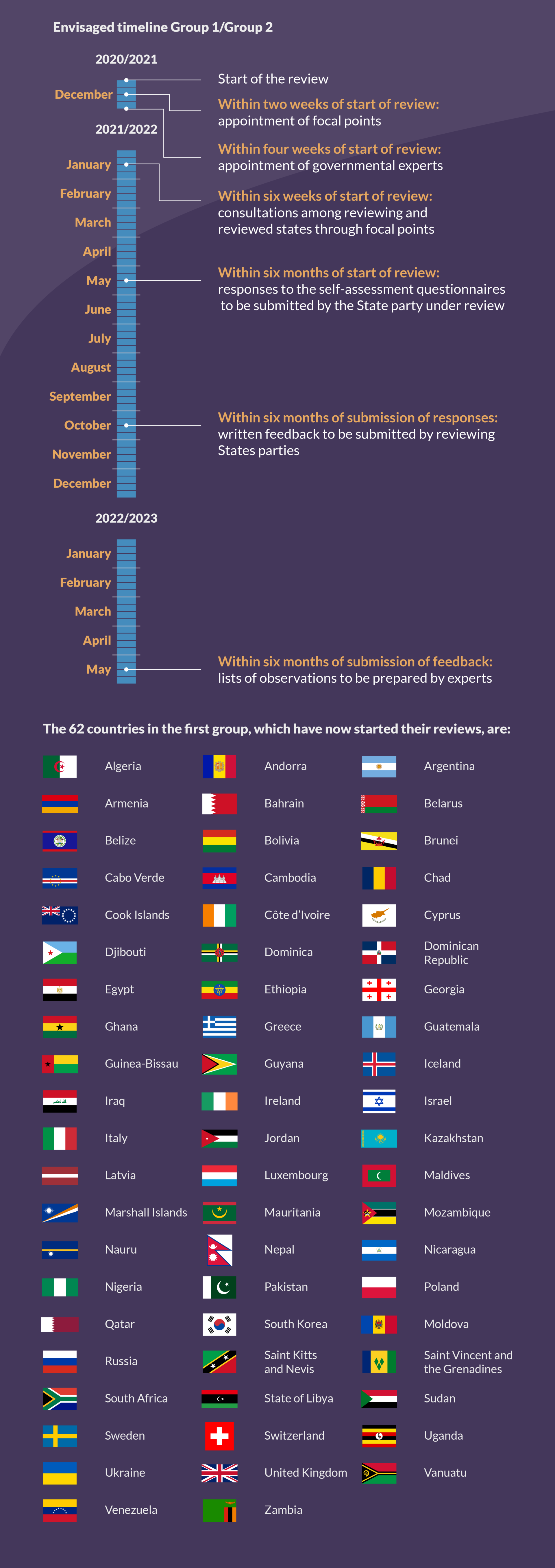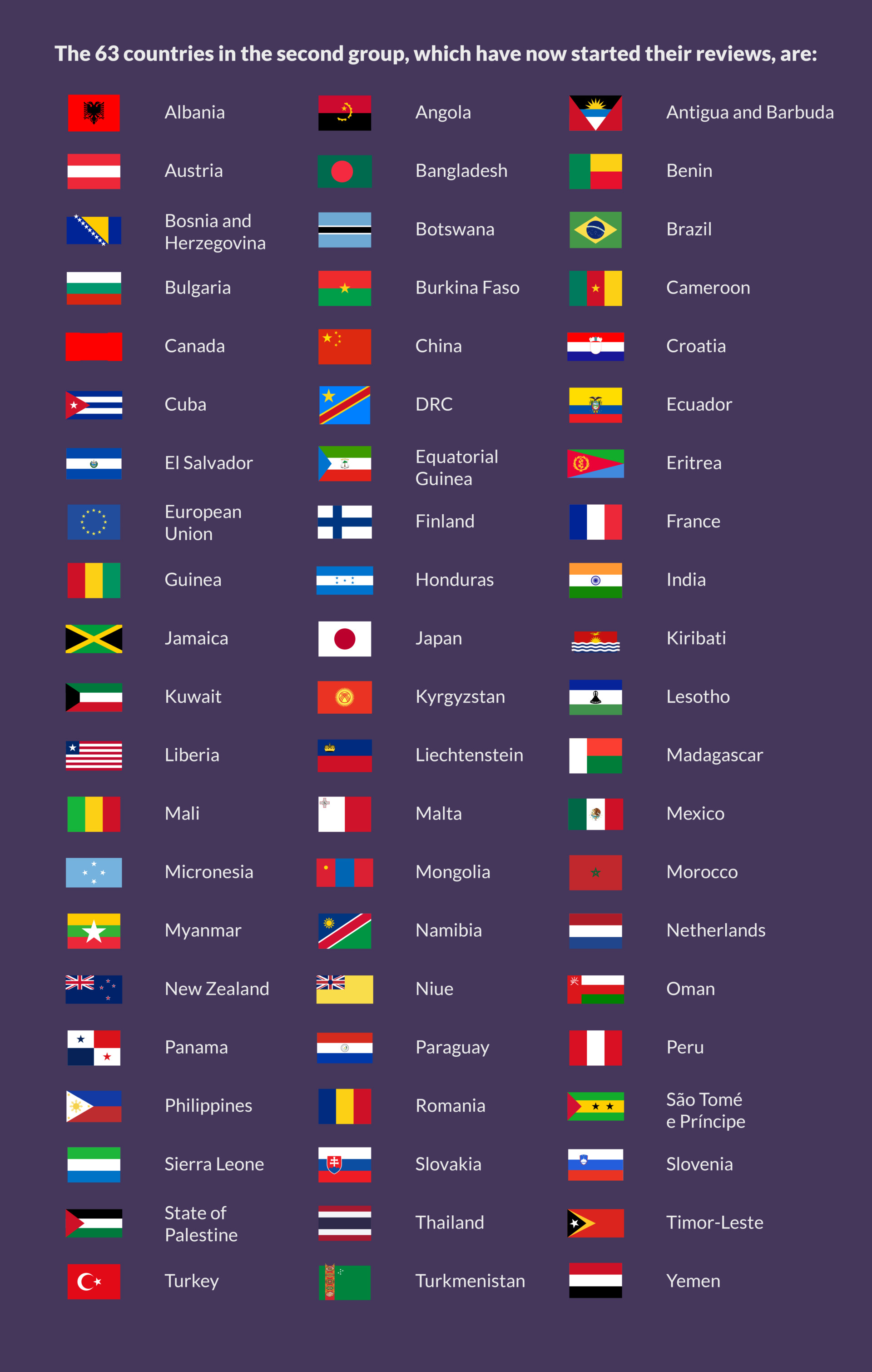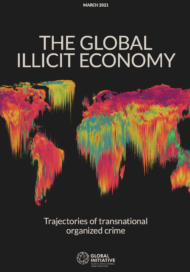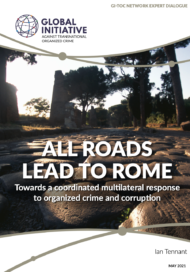Posted on 22 Feb 2022
In October 2020, the long-awaited Implementation Review Mechanism of the UN Convention against Transnational Organized Crime (UNTOC) was launched in Vienna, the home of the UN Office on Drugs and Crime (UNODC). Since then, and without much fanfare, the mechanism has begun its operations and state officials are engaging with each other and the UNODC.
The mechanism is intended to assess how states are implementing UNTOC and the protocols to which they are party, and to identify what gaps exist in implementation that could be addressed through capacity building and technical assistance. But as the Global Initiative Against Transnational Organized Crime (GI-TOC) has written before, there are serious drawbacks in the design of the mechanism, including its low levels of transparency and limited scope for substantive engagement with civil society on specific issues in specific countries. This risks hampering the effectiveness of the mechanism, as civil society can provide data and expertise that is not always available to the state.
In order for civil society to engage in this process, information and guidance is needed. This blog recaps some of the key information and resources that interested civil society will need to attempt to engage with the mechanism, and therefore hopefully inform and improve the response to transnational organized crime.
Which countries are being reviewed now, and what issues are being examined?
All the countries to be reviewed have been split into three groups, the first group of which have already begun their self-assessment phase and have been assigned two countries that will review the self-assessment. According to the guidelines of the Convention, the timeline for the self-assessment process is as follows, although delays are occurring meaning many member states are falling far behind these milestones already:
- Within two weeks of start of review: appointment of focal points
- Within four weeks of start of review: appointment of governmental experts
- Within six weeks of start of review: consultations among reviewing and reviewed states through focal points
- Within six months of start of review: responses to the self-assessment questionnaires to be submitted by the State party under review
- Within six months of submission of responses: written feedback to be submitted by reviewing States parties
- Within six months of submission of feedback: lists of observations to be prepared by experts

The next group of 63 countries started their first two-year review cluster in November 2021, and the third group will start in November 2022.

The mechanism will review four clusters of provisions of the Convention. The first cluster to be reviewed is ‘Criminalization and Jurisdiction’. This cluster covers articles 2, 5, 6, 8, 9, 10, 15 and 23 of UNTOC; articles 3 and 5 of the Trafficking in Persons Protocol; articles 3, 5 and 6 of the Smuggling of Migrants Protocol; and articles 3, 5 and 8 of the Firearms Protocol. To assess their implementation of this cluster of provisions, states will use this UNODC questionnaire.
What can I do now?
The 125 countries with reviews underway are encouraged to engage with civil society during this self-assessment process. For civil society actors, time may be of the essence: the window for engagement could be closing soon or for some countries in the first group it may have already close.
- Now is the time to engage with your government (which has or will designate a specific focal point designated for the review) using this letter, or your existing contacts.
- Read the UNODC questionnaire that states will answer under the current cluster.
- Consult the joint UNODC–GI-TOC guidelines for civil society engagement.
- Read the Review Mechanism official website for updates.
- Read the UNODC toolkit on stakeholder engagement.
- Check the UNODC Civil Society Unit page for updates on upcoming training or engagement sessions on the mechanism.
- You can fill in the questionnaires for civil society developed by GI-TOC. These are available on the sidebar of this page. Please read the guidance carefully and get in touch if you have any questions or want help or support completing it and/or submitting it to your government or other stakeholders. Currently available in English and French. GI-TOC and other NGOs are already using these questionnaires to engage with some governments in their review process, we look forward to sharing best practice and lessons learned in due course.
UPDATE: Get ready for the constructive dialogues, and the October Conference of Parties!
The other official avenues for engagement are the ‘constructive dialogues’ between civil society and States parties (which will be held on 6 May , 27 May and 1 July 2022 in Vienna, Austria) and the plenary of the conference, the next session of which will be held in October 2022. You can already register to participate in the thematic constructive dialogues:
- Constructive Dialogue on Firearms: 6 May 2022. Register here until 17 March 2022 midnight Vienna time.
- Constructive Dialogue on International Cooperation and Technical Assistance:27 May 2022. Register here until 17 March 2022 midnight Vienna time.
- Constructive Dialogue on Smuggling of Migrants and Trafficking in Persons:1 July 2022. Register here until 8 May 2022 midnight Vienna time.
The constructive dialogues are the main opportunity for substantive engagement between governments and civil society on the main themes of the UNTOC. However, ‘country situations’ cannot be mentioned, so discussion will focus on trends and analysis rather than specific situations in countries.
We will keep this page updated when more information becomes available about the UNTOC Conference of Parties, which will take place in October 2022 in Vienna.
Gathering feedback
We are interested to hear your experiences and feedback regarding your experiences engaging with the UNTOC Implementation Review Mechanism. Please send any comments or questions to secretariat@globalinitiative.net or Ian.tennant@globalinitiative.net.
Other resources
GI-TOC, UN-TOC Watch
GI-TOC, The Promise of Palermo
GI-TOC statement at the 10th UNTOC Conference of Parties
UNODC, Review Mechanism – Tools
The following upcoming training opportunities are being coordinated by the UN Office on Drugs and Crime (UNODC), in partnership with the GI-TOC:
- UNODC SE4U Self-Paced Course in Arabic, French and Spanish
The next SE4U Self-Paced course for civil non-governmental stakeholders’ engagement in the review mechanism of the UNTOC will take place from 15 March to 30 April 2022 (in Arabic, French and Spanish only). UNODC invites you to nominate people from your organizations to take part. This course focuses on the implementation of UNTOC and its Review Mechanism, and can be completed at your own pace and time during a period of six weeks. The workload is approximately 18 hours. It will be facilitated by a dedicated SE4U expert and selected SE4U alumni might be considered to participate in follow-up activities.
Duration: 15 March 2022–30 April 2022
Please register here by 6 March 2022
- UNODC SE4U Online Workshop
The SE4U online workshop for non-governmental stakeholders’ engagement in the review mechanism of the UNTOC will take place from 4 April to 6 April 2022 (in English, Arabic, French and Spanish). The aim of the workshop is to prepare participants to contribute to the general review and to the constructive dialogues. The training will be held in virtual format and conducted using Microsoft Teams. It will involve live plenaries, interactions in breakout groups and Q&A sessions. It is possible that due to COVID-19 regulations the training take place in a hybrid mode.
Duration: 4 April 2022–6 April 2022
Please register here by 6 March 2022



